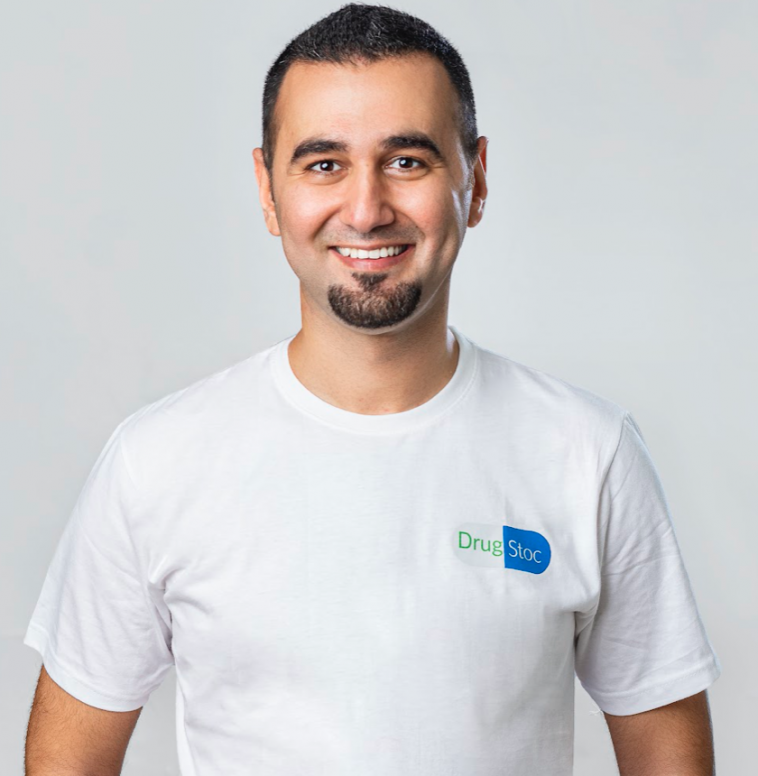It was only last month when Drugstoc, the Nigeria-based pharmaceutical supply chain startup working to empower African healthcare providers, announced a successful $4.4 million Series A. Chibuzo Opara and Adham Yehia are the co-founder-duo with extensive experience in the healthcare sector and the main stewards of the company’s expansion drive. Tech in Africa spent some time with co-founder Adham Yehia to find out what he thinks about Nigeria’s e-health sector.
So what are the main challenges facing the sector?
Adham describes the current state of the pharmaceutical supply chain in Nigeria as fragmented with little to no structural and streamlined processes that can reach the last mile efficiently. This leaves middlemen as key players in distributing pharmaceutical drugs across the country.
Secondly, pricing is a major challenge given the siloed nature of the sector and the lack of uniformity that translates into wholesalers setting their own prices. He also singles out counterfeit and expired drugs from unchecked distributors as posing a major threat to consumers. A lack of structured stock control and distribution systems means that traceability is hard to achieve. Poor storage processes also result in a good number of drugs, roughly 8 to 30 percent deemed as substandard.
In addition, access to drugs in a fair and equitable distribution of drugs is another challenge mainly arising from supply chain rules such as bulk purchases that affect small community pharmacies from accessing cost-effectively.
What new technologies are emerging in the Nigerian pharmaceutical space?
Rising technologies and innovations in the healthcare sector as a whole are an encouraging indication of Africans working to improve the continent’s healthcare. Countries like Kenya, Nigeria, Egypt, and South Africa have made enormous strides in e-health-related innovations.
A good chunk of technology and investment has gone into front-facing patient technologies such as telemedicine, consolidating E-pharmacies, and much more. All these innovations support streamlined healthcare, for instance, telemedicine has the ability to cut down patient access and waiting times phenomenally while making it cheaper as it optimizes around the doctors’ time rather than the organization’s time.
The adoption of artificial intelligence also helps work around challenges such as huge population growth and the limited nature of healthcare resources available. Scaling and optimization is the best way of rolling out access to the masses given that most developing countries are hard-pressed on resources – a situation that won’t change in the foreseeable future.
In the pharmaceutical sector, emerging trends such as precision medicine are driving pharmaceutical companies to invest in artificial intelligence to discover new drugs or optimize specific ingredients. Alternatively, they are looking to customize specific medication for a specific genetic subsets/subtype. Widespread adoption of precision medicine across Africa in a timely manner can be a game-changer.
Drugstoc intends to create a seamless link between manufacturers and pharmaceuticals so that the information from the healthcare providers on their exact needs, patient pools, or disease burdens, can be translated. This, in turn, helps take the system from a push system based on merely distributing fast-moving drug items, to a pull system where the healthcare providers actually dictate what engagement they are going to have with the pharmaceutical suppliers. Asoko insights shows Nigeria’s pharmaceutical industry as heavily overreliant on foreign imports. In 2019 Nigeria the value of pharmaceutical imports was over $1.45 billion in a 182% increase from the previous year. More than 95% of the local drugs are imported from China and India – a situation that only worsened when both countries imposed supply restrictions at the height of the pandemic. Global lockdowns cast a spotlight on the dangers of overreliance on importing raw or finished pharmaceutical goods.
Where do you feel investor activity needs to be concentrated more in the Nigerian healthcare industry?
The next couple of years is more about consolidation technologies. Adham believes more needs to be channeled upstream of the pharmaceutical sector particularly towards manufacturing, compounding, and precision medicine technologies. Given Nigeria and most other African nations are heavily reliant on agriculture, focus can go towards developing high-quality Active Pharmaceutical Ingredients (APIs). In addition to more investment into the health sector holistically, more resources can go towards the last-mile distribution, innovations in medical manufacturing such as packaging and distribution products.





